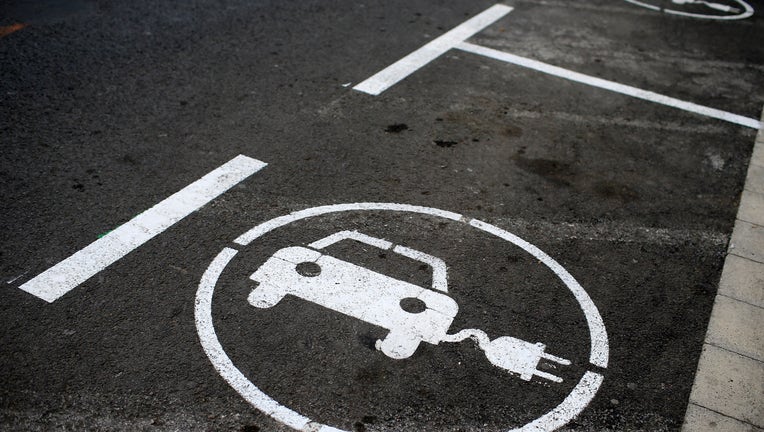Michigan launches pilot to build a wireless charging road for electric vehicles in Metro Detroit

Photographer: Pau Barrena/Bloomberg via Getty Images
LANSING, Mich. - Michigan was home to the first mile of paved road. Plans are now in place to build the first mile of wireless charging in the country.
Gov. Gretchen Whitmer announced the state's intention to oversee the design and construction of a roadway that will charge electric vehicles while they drive - enabling cars, trucks, and public transit options that carry batteries to recharge without stopping.
Amid concerns about new electric vehicles not having enough range on a single charge of battery life, the futuristic road plan would wirelessly recharge a vehicle without the need for a station. it will be built in either Wayne, Macomb, or Oakland County.
"This project reinforces my commitment to accelerating the deployment of electric vehicle infrastructure in Michigan and will create new opportunities for businesses and high-tech jobs amidst the transition to electric vehicles," said Whitmer in a statement.
While the auto industry has leaned heavily into the world of electric vehicles, the infrastructure needed to charge them is still lacking. Money from a trillion-dollar infrastructure package still awaiting final approval from Congress allocates millions for the construction of charging stations.
The availability of charging stations is one of many barriers for the EV industry, even as the range for batteries continues to improve in vehicles.
The Inductive Vehicle Charging Pilot hopes to ease the adoption of electric vehicles while increasing their range and convenience. The program is the first of its kind in the nation. The Michigan Department of Transportation will work in conjunction with the Office of Future Mobility and Electrification, an agency under the Michigan Economic Development Corporation.
RELATED: Ford investing $250 million more to build electric F-150
A request for proposal to design, fund, evaluate, iterate, test, and implement the pilot will go live on Sept. 28.
"At MDOT, we know the future of mobility involves connectivity, and this initiative dovetails nicely with our other successes linking vehicles and infrastructure through technology," said MDOT Director Paul C. Ajegba. "This is a model we will build on across the state to further promote the governor’s broad and ambitious vision."
More information can be found here.

